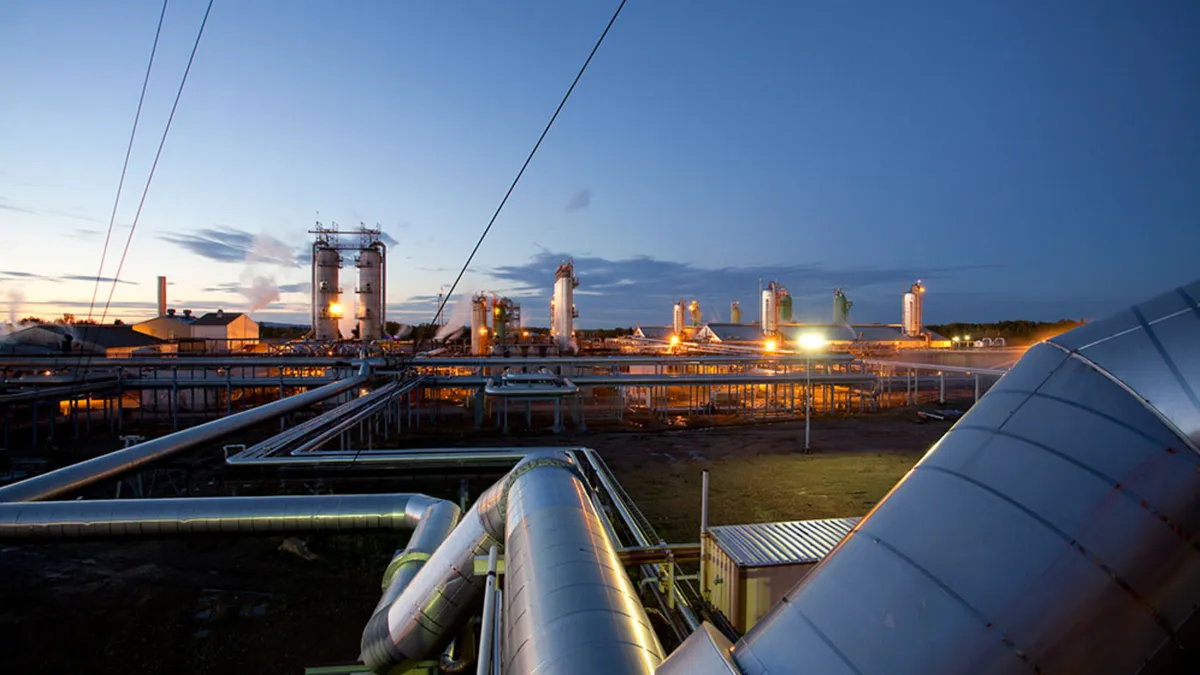Dive Brief:
-
The Federal Energy Regulatory Commission (FERC) on Monday authorized the Millennium Pipeline Company to commence service on its Valley Lateral Pipeline that supplies gas to a generator in New York.
-
The small pipeline attracted attention after New York tried to block its construction by denying it water permits. FERC overruled that decision last year and a federal court backed the federal agency up in March, denying an appeal from the state and allowing construction to continue.
-
Owners of two much larger pipeline projects in New York — the Constitution and Northern Access pipelines — want FERC to similarly overrule water permit denials. Secretary of Energy Rick Perry has called for federal intervention if the state continues to block pipeline construction.
Dive Insight:
Commencement of service on Valley Lateral means the end of an extended struggle over the 8-mile pipeline that put it at the center of the federal energy infrastructure debate.
Last year, FERC rejected New York’s denial of water quality permits for the pipeline under the Clean Water Act, saying the state exceeded the law’s one-year deadline to make a final decision on the project. New York appealed, but the U.S. Appeals Court for the Second Circuit upheld FERC’s decision on March 12.
The court battle became a proxy for a larger war over gas infrastructure in the Northeast U.S., where grid operators say more pipelines are needed but projects face stiff opposition from local residents, environmentalists and state governments like the one in Albany.
Last year, Perry said the Trump administration would consider intervening if New York continues to block projects, a message he reiterated at the end of last month, warning of a "reckoning" for state governments opposed to new fossil infrastructure.
That intervention could involve the federal government’s eminent domain or national security powers, Perry and his deputies told oil and gas leaders last September, but the agency has done little to develop those plans, instead focusing on bailing out uneconomic coal and nuclear generators.
Change could come from FERC as well. The agency said in January that it would not seek to overrule New York's denial of water permits for the 124-mile Constitution Pipeline, leading the project's owners to challenge it in court.
Last month, the U.S. Supreme Court declined to hear the Constitution Pipeline case, leaving the owners with one avenue for their project — a new hearing at FERC. The agency in March granted a limited rehearing request for Constitution, but it remains to be seen if regulators will challenge the state on that project or Northern Access, a 96-mile pipeline that has also asked for rehearing.
FERC is also currently reviewing its pipeline certification process, which dates to 1999, and could change how state governments and residents provide input to project decisions. The two Democrats on the commission have called for more scrutiny into pipeline decisions, but Chairman Kevin McIntyre, one of three Republicans, has said he will not endorse changes that will lengthen review times.
That balance of power will soon shift, however. Republican Commissioner Robert Powelson will retire next month, leveling the partisan divide at FERC until a replacement can be confirmed by the Senate. That will give Democrats more sway in agency decisions, including the ability to halt pipeline certifications.













